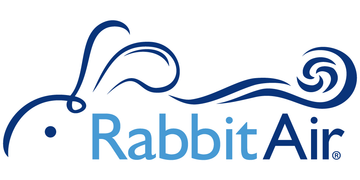
HEPA filters — otherwise known as High-Efficiency Particulate Air filters — remove hazardous pollutants from the air in homes, workplaces, cars, and airplanes, minimizing health risks and helping us to breathe better.
Breathe Cleaner Air
While many of us are all-too-familiar with the dangers of outdoor air pollution to our health, few stop to consider that the air inside their homes or workplaces might also be polluted — according to the Environmental Protection Agency (EPA), indoor air pollution is actually one of the top five environmental health risks.
Airborne dust particles can irritate the inside of your lungs, exacerbating problems like allergies and asthma and introducing a range of other health risks. The EPA recommends properly ventilating your living space with an air cleaning device, like a HEPA (High Efficiency Particulate Air) filter. But what are the advantages of a HEPA filter, and how does it work?
Why Use HEPA Filters?
Most filters are only capable of filtering large-sized particles in the air. Filters function by catching all particles or objects above a certain size and letting anything smaller pass through, based on the size of the filter’s holes.
The average vacuum, for example, only captures some of the dirt it takes in, and actually releases the rest back out into the air. HEPA filters are much more high-functioning, and are capable of capturing over 99% of the particles in the air.
How Do HEPA Filters Work?
Inside every HEPA filter is paper made from very densely and randomly arrayed fine glass fibers, measuring between 0.5 and 2.0 micrometers. The filters catch dust and other particles in three ways — the first way is through interception, where particles enter the filter at a high speed, and get trapped within the filter.
When larger particles enter the filter, they travel along the curve of the air stream and are unable to avoid the fibers. Also known as impaction, this is most likely to occur at higher airflow velocities.
The last step of HEPA filtering is diffusion, which occurs with smaller particles — typically below 0.1 micrometers — and at lower air speeds. The particles float randomly through the filter and collide with gas molecules, which then obstruct and prevent the particles from passing through the filter.
Where Did the HEPA Filter Come From?
While the invention of the HEPA filter isn’t linked to any one person in particular, we might actually be able to attribute its existence to the atomic bomb. Fiber-based air filters were originally created as a part of the Manhattan Project, the initiative that created and tested the first nuclear weapon.
The filters were so effective at removing unwanted toxins that they were actually used to clean the air of radioactive particles.
Later, in the 1960’s, two German brothers, Klaus and Manfred Hammes, brought fiber-based filters into people’s homes by designing cheap air filters that reduced soot particles produced by coal-fired stoves. Now HEPA filters are used everywhere from manufacturing plants to modern airlines, and even in our own homes.
Look for “True HEPA” Not all filters are created equal. Any filter that claims to be “HEPA-like” or “HEPA type” is not a true HEPA filter, and likely won’t perform as well. A “true HEPA” filter has the ability to trap 99.97% of particles down to 0.3 microns in diameter, as defined by the U.S. National Institute of Occupational Safety and Health (NIOSH). For some perspective, a human hair is 50-150 microns in diameter, which means very little gets through an authentic HEPA filter unscathed.
Rabbit Air’s award-winning air purifiers use true HEPA filters to trap allergens and pollutants in the air. What’s more, you may not even remember you own a Rabbit Air purifier — since their Brushless Direct Current Motor operates almost silently, you won’t even hear it working.
Not only are they quiet, but they’re also good-looking, with customizable artistic panels that you can choose yourself. With a Rabbit Air purifier, you can quite literally breathe easy.




